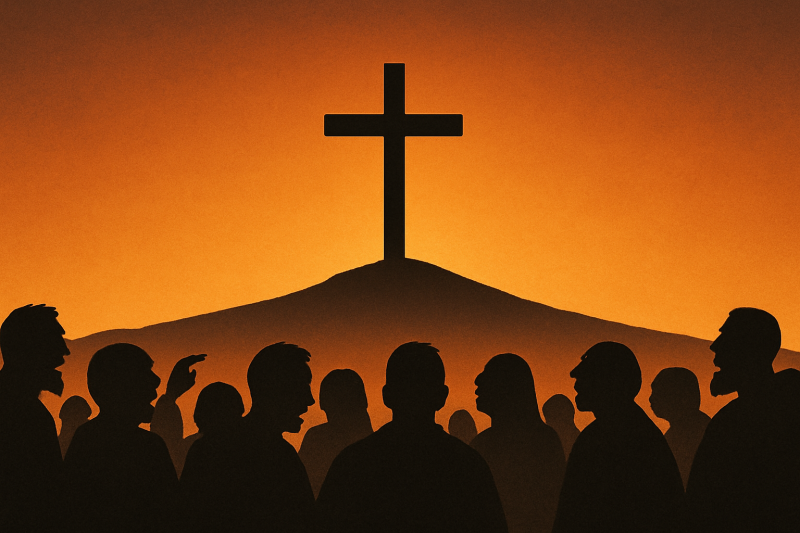When Christ was nailed to the cross His physical agony was only part of the pain. Mark frames Calvary with two waves of ridicule: first the Roman garrison (15 :16-20), then three fresh voices beneath the sign, “King of the Jews.”

-
Passers-by hurl abuse, repeating Jesus’ own words about destroying and rebuilding the temple – not realising the prophecy is being fulfilled before their eyes.
-
Priests & scribes sneer that He “saved others, but cannot save Himself,” blind to the gospel-irony that refusal to save Himself is the very act that saves others.
-
The two bandits join in, completing the picture of a world – Jew, Gentile and criminal – united in contempt.
Mockery is never innocent; in Scripture it is the language of arrogance toward God. Yet every jibe here is woven into prophecy (Ps 22; 69; Isa 53). Their taunts become unwitting testimony: He is the Messiah, He is rebuilding God’s dwelling, precisely because He stays on the cross.
Behind the insults stands something deeper still: divine wrath. Being handed over to scorn was part of covenant curse (Ps 89 :38-41). Christ bears it willingly so that covenant breakers like us might never hear heaven’s derision.
Thus the Rejected One is in fact our Champion. “He saved others—Himself He could not save.” Love, not nails, keeps Him there; our salvation is secured by His refusal to come down. In His shame we find our boast.
Takeaway: Mockery will stalk all who follow a mocked Messiah. Yet we answer neither with silence born of shame nor scorn returned in kind, but with the quiet confidence of people whose King turned every sneer into an anthem of grace.


Add comment
Comments